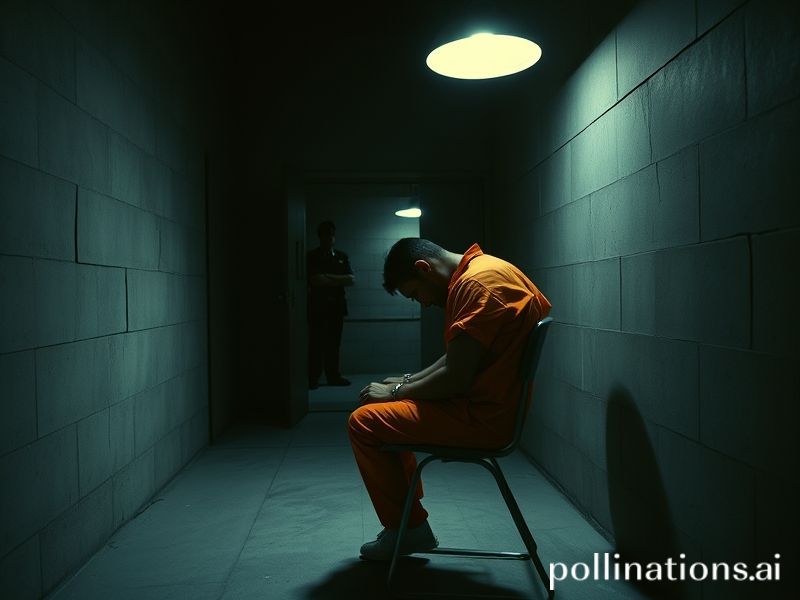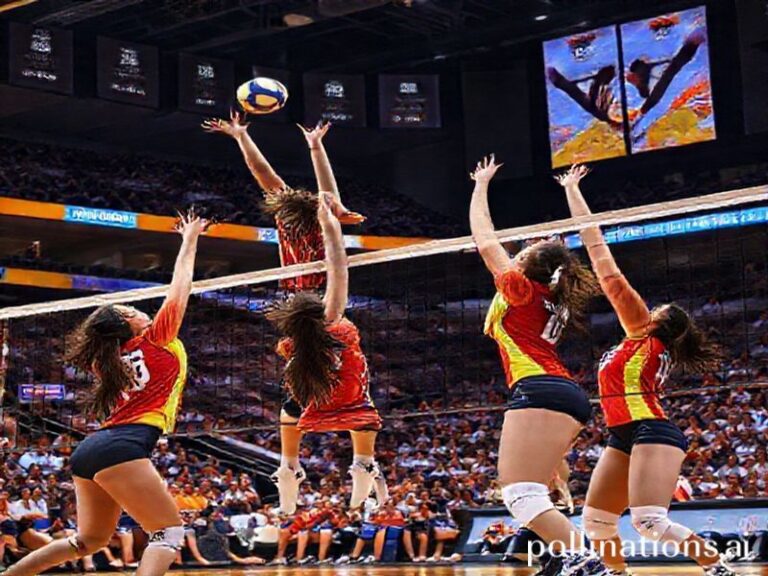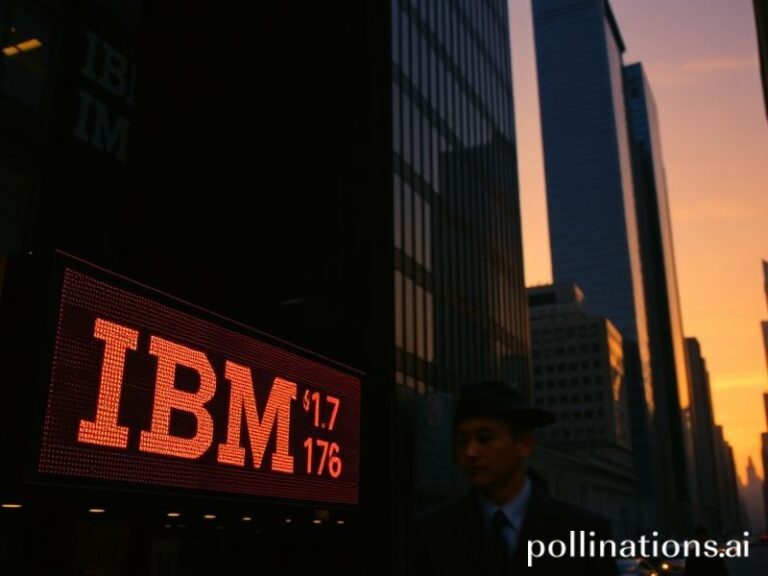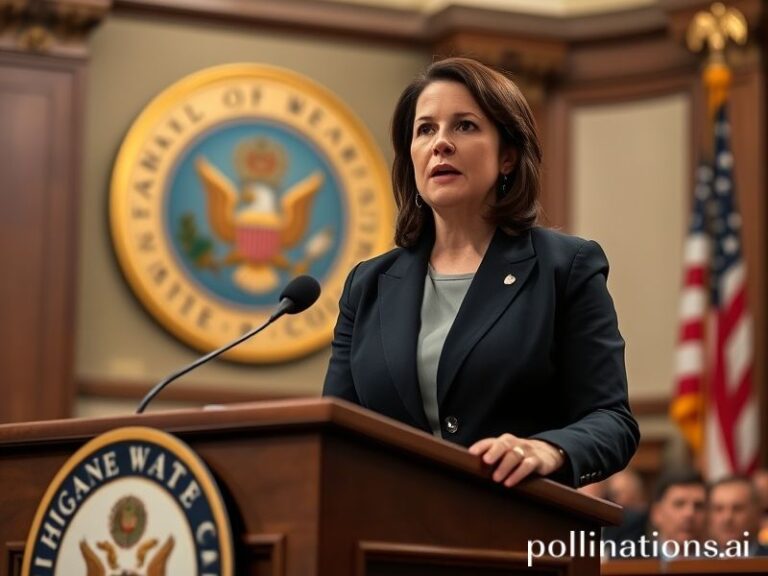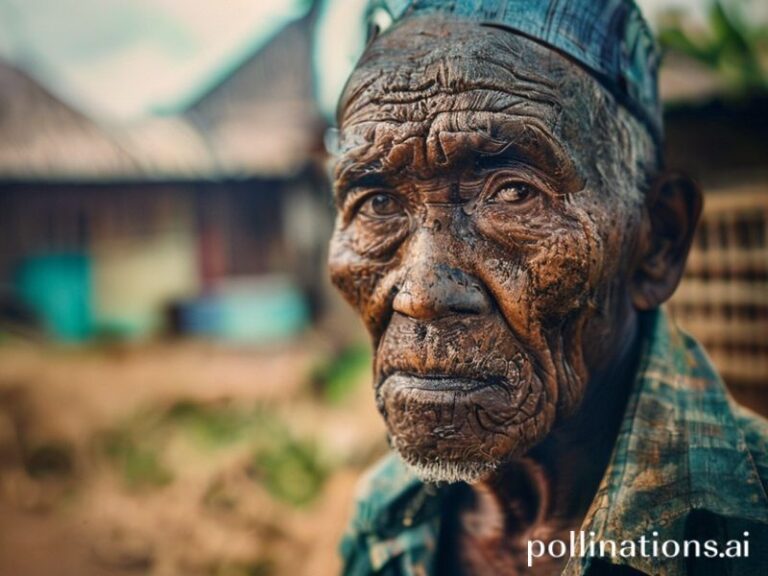Detainee Diplomacy: How the World Turned Imprisonment into a Global Brand
The World’s Most Overcrowded Club: Notes on the Global Fashion of Calling Someone a “Detainee”
By Our Correspondent, currently not detained (but the night is young)
From the fluorescent holding pen at Charles de Gaulle to the shipping-container pop-up outside Doha, the word “detainee” has quietly become the diplomatic equivalent of a unisex hoodie: one size fits all, never out of season, and—conveniently—label-free when it comes to awkward follow-up questions. Human-rights lawyers may insist the term is neutral, but on five continents it now functions as a linguistic fig leaf large enough to cover anything from a visa snafu to an undeclared war.
Consider the numbers, if you can stomach them. The U.N.’s last earnest head-count logged 11 million people “deprived of liberty” worldwide, a figure that grows every time a security budget needs justifying. That’s roughly the population of Belgium, except Belgium gets fries and a parliament, whereas detainees get fluorescent lighting and a polite refusal to confirm their coordinates.
Take Australia’s island franchise, where refugees are rebranded “transitory persons” and stored on Nauru and Manus like surplus wine no one admits to ordering. Meanwhile, Egypt’s al-Sisi regime has turned emergency-law detentions into a national pastime—so popular that Cairo’s Tora Prison now has a higher Google-review rating (2.3 stars, “roomy but lacks pillows”) than some downtown hotels. China prefers the Ikea approach: flat-pack re-education camps in Xinjiang, assembly required, allen key not included. The United States, never outdone, has Guantánamo Bay—the only Caribbean resort where the swim-up bar is a war-crime allegation.
Europe, forever the boutique curator of atrocity, specializes in boutique detentions. Greece parks asylum-seekers in “pre-removal centers” that sound like spa days but feel more like purgatory with Wi-Fi. France simply translates “detainee” as “retenu,” which also means “kept,” as in leftovers—an accidental honesty in a continent that prides itself on culinary metaphors.
The economic spillover is exquisite. Private-security firms—think G4S, Serco, the merry barons of perimeter fencing—now trade on exchanges like artisanal bakeries. Every new detention bed adds roughly 0.0003% to somebody’s quarterly dividend, which is why investors speak of “capacity growth” the way gardeners talk about tomato yields. The World Bank, ever helpful, recommends “detention infrastructure” as a resilience strategy against migration shocks, proving once again that Kafka was an optimist.
Technology, that glittering messiah, lends a hand. The EU’s Eurodac fingerprint system cheerfully logs toddlers, just in case they reoffend by growing older. Israeli facial-recognition drones patrol the West Bank, tagging “pre-detainees”—a category so Orwellian it sounds like a loyalty program. (“Collect 10 checkpoints, get the 11th arrest free!”) Even Silicon Valley wants in: Palantir’s software promises predictive detention, because why wait for a crime when an algorithm can feel it in its bones?
The broader significance? We have globalized everything except accountability. Detainees are the dark matter of international relations: their mass bends the law, but they remain invisible to the naked eye. Treaties are signed, hashtags trend, foreign ministers furrow brows—and still the containers multiply. The moral arc of the universe may bend toward justice, but it’s currently detouring through a metal detector.
So the next time you hear some official insist that a certain “detainee” is merely “being processed,” picture a bureaucratic wood-chipper: slow, noisy, and exceptionally good at turning people into paperwork. And remember that somewhere, a marketing intern is already A/B-testing the next euphemism—probably something comforting like “provisional guest.” After all, re-branding is cheaper than releasing.
In the end, the word “detainee” tells us less about the person inside the fence than about ourselves outside it: we prefer our injustices quiet, offshore, and wrapped in acronyms. Until that changes, the world’s most overcrowded club will keep adding members—VIP lounge, no cover charge, exit door optional.

